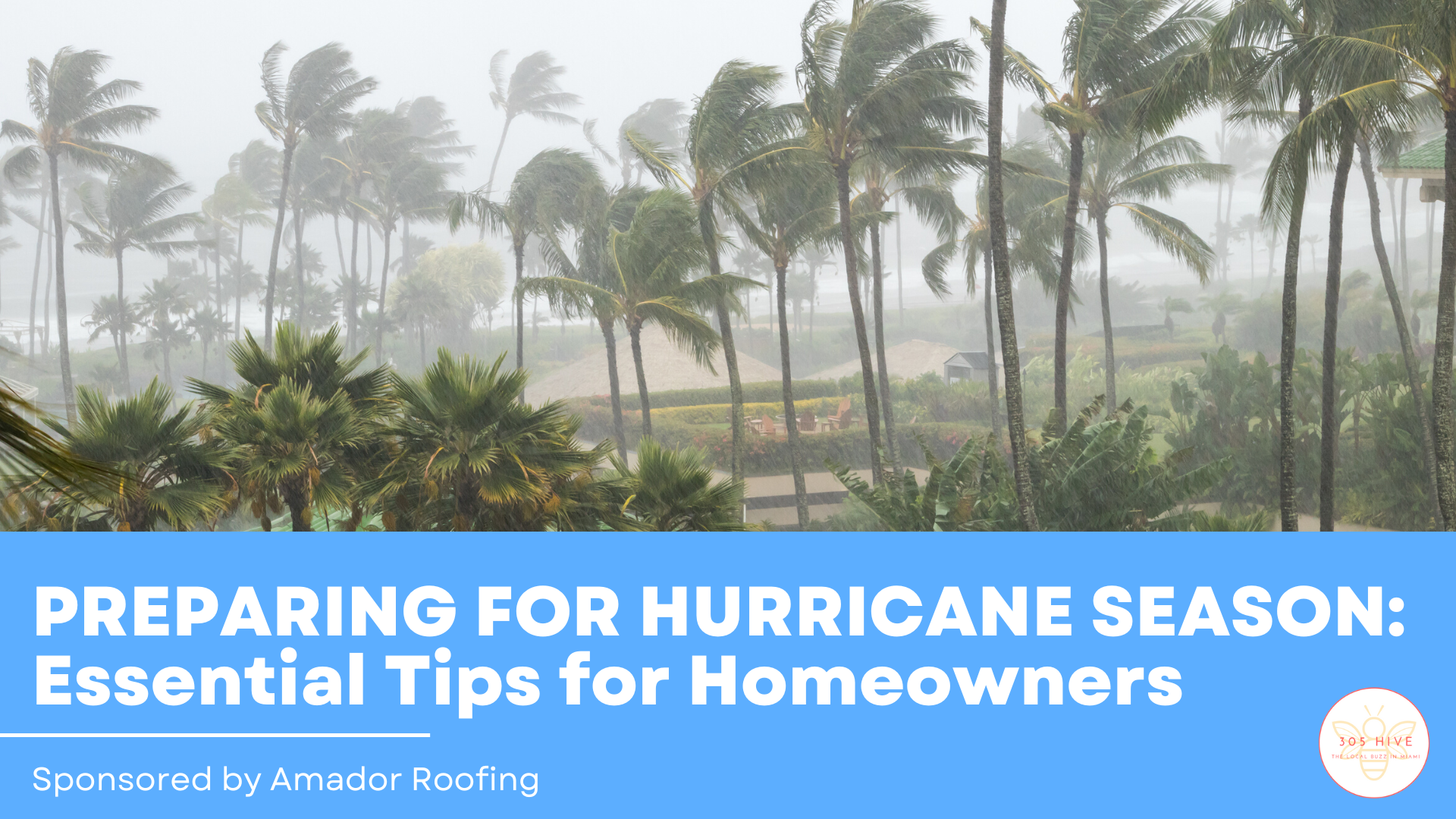Sponsored by Amador Roofing

Hurricane season is upon us once again. These strong tropical storms can leave a wide wake of destruction in their path. Being prepared is your best defense. Here are some tips on preparing for the next hurricane that might head our way.
Before a Hurricane:
- Assemble a disaster supplies kit for your home and car. Include essentials like food, water, medications, first aid supplies, batteries, flashlights, and important documents.
- Make a family communications plan to ensure everyone knows how to get in touch and where to meet.
- Trim your trees to prevent branches from causing damage during high winds.
- Have a plan for your pets, including food, water, and necessary medications.
- Board up your windows or install storm shutters to protect your home from flying debris.
- Bring in outdoor objects that could blow away, such as patio furniture, grills, and potted plants.
- Strengthen your home by securing loose roof shingles and reinforcing garage doors.
- Reinforce your roof: Consider reinforcing your roof with hurricane straps or clips.
- Check attic ventilation: Ensure your attic is properly ventilated to reduce the risk of wind pressure building up under your roof.
- Secure Loose Items: Remove or secure any loose items around your home that could become airborne and damage your roof or home during high winds.
- Install roof braces: For older roofs, consider installing additional braces to strengthen the roof structure.
- Know your surroundings and all evacuation routes to ensure you can leave quickly if necessary.
- Stock up on enough food, water, and medication for at least three days.
- Prepare written instructions on how to turn off electricity, gas, and water.
- Have a NOAA weather radio handy with plenty of batteries to listen to storm advisories.
- Plan to go to a shelter if your home isn’t on higher ground.
- Evacuate immediately if emergency managers say to do so.
- Have some cash on hand in case ATMs are out of service.
- Fill up your tanks. Make sure your car and generator is filled with gasoline.
- Inspect your roof regularly your roof for any damaged or loose shingles, tiles, or other materials. Repair any issues immediately to ensure your roof is in the best possible condition.
- Clean gutters and downspouts: Ensure that gutters and downspouts are clear of debris to prevent water buildup and potential roof damage during heavy rains.
- Review insurance coverage: Ensure your homeowner’s insurance policy covers hurricane damage and understand the process for filing claims.
During a Hurricane:
- Listen for emergency information and alerts.
- Always stay indoors, interior rooms are best for protection from strong winds and flying debris.
- Monitor for leaks: Keep an eye on your ceilings and walls for any signs of water leakage. Use buckets to catch water and minimize damage if necessary. If your roof has an active leak move to another room to avoid a potential ceiling collapse.
- Use flashlights if the power goes out; do not use candles to avoid fire hazards.
- Do not run generators indoors or in poorly ventilated areas.
After a Hurricane:
- Register yourself as safe on the Safe and Well website to let friends and family know you’re safe.
- Stay indoors until it is safe to come out.
- Check for injured or trapped people, but do so without putting yourself in danger.
- Watch out for flooding and downed power lines.
- Do not attempt to drive in flooded water.
- Stay away from standing water, as it may be contaminated or hide dangerous debris.
- Do not drink tap water until officials say it’s safe to do so.
- Inspect Your Roof Safely: Once it is safe to go outside, carefully inspect your roof for any visible damage, such as missing shingles, tiles, or debris.
- Document damage: Take photographs of any damage to your roof and home for insurance purposes. This will help with claims and repair estimates.
- Avoid walking on the roof: Walking on a damaged roof can be dangerous. If you need a closer inspection, consider hiring a professional roofer.
- Temporary repairs: If you notice any significant roof damage, cover the affected areas with a tarp to prevent further water intrusion until permanent repairs can be made.
- Hire a professional: Contact a licensed and insured roofing contractor to assess and repair any damage. Ensure they are reputable and experienced in hurricane damage repairs.
- Wear protective clothing and be cautious when cleaning up debris to avoid injury.



